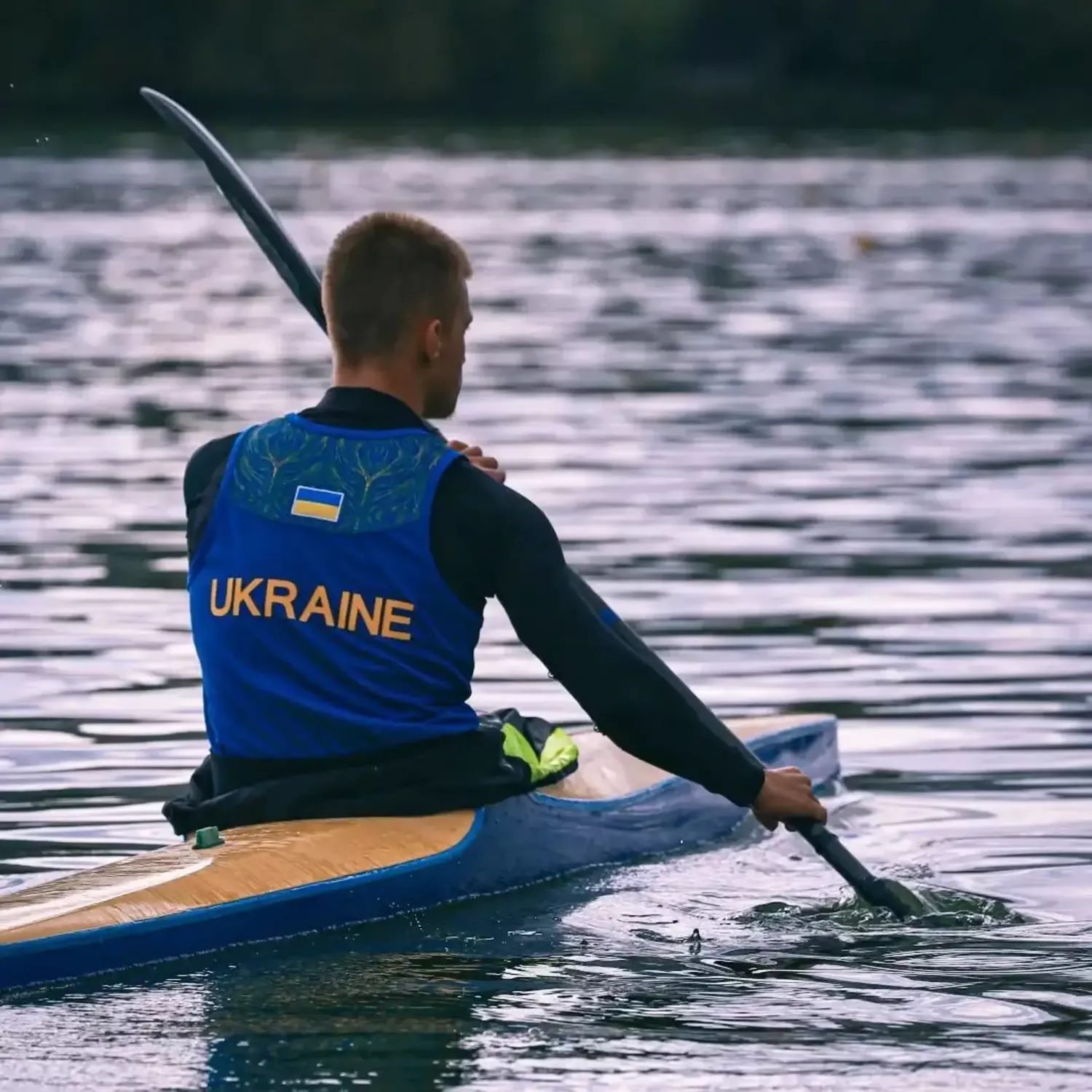Mykolaiv rower and «Azov» fighter tells how sport helped him survive at the front
- News of Mykolaiv
-
•
-

- Mariia Khamitsevych
-
•
-
21:04, 24 August, 2025
 Mykolaiv rower and «Azov» fighter told how sport helped him survive the frontline. Photo: ua.tribuna.com
Mykolaiv rower and «Azov» fighter told how sport helped him survive the frontline. Photo: ua.tribuna.comNikita Kolpakchy, a rower from Mykolaiv and a member of the «Azov» regiment, shared the story of his journey from sporting victories to the frontline and his return to his favourite pastime.
He told this story in an interview with «Tribune».
The athlete admitted that it was physical fitness and discipline that helped him to withstand the difficult conditions.
«I have always liked sports because I had discipline, in any area of our life «discipline» is an integral part of success, but in addition to discipline, sports brought into my life a good team, in which I was pleased to be, and even now, from time to time, when I am in the city, I visit our sports base, - says the military man.
According to him, rowing has become part of his psychological and physical rehabilitation.
 Mykolaiv-based rower and fighter with the «Azov» regiment told us how sport helped him survive at the front. Photo: ua.tribuna.com
Mykolaiv-based rower and fighter with the «Azov» regiment told us how sport helped him survive at the front. Photo: ua.tribuna.com- Sport at war is probably more about maintaining your overall physical condition. But it also becomes a way of distraction — from problems, from thoughts, from the war itself. It's a kind of outlet that helps you keep your balance and not break down inside,» emphasises Nikita Kolpakchy.
At first, the fighter tried to combine service and sport and trained regularly, but now, due to health problems, he cannot actively train.
«Unfortunately, I will not be able to return to big sports, even if I really want to,» says the soldier.
After the war, he is thinking about studying to become a rehabilitation therapist and believes that after serving in the army he will be able to become a good specialist in this field, as this profession will be in great demand.
«I realised that life is about moments. And the more such moments you remember, the more fully you have lived. I really started living only two years ago. Now I value my life much more than before. I appreciate every moment, every person around me and everything I have now. I don't have time to complain — I just live and try not to lose myself in it all,» says Nikita Kolpakchy
The «Azov fighter also admits that he dreams of Ukraine's victory and a peaceful future.
As a reminder, Ukrainian sabre fencer Alina Komashchuk refused to take a joint photo with Russian representative Yana Yegoryan at the award ceremony at the World Championships in Tbilisi. The Ukrainian won a bronze medal and left the podium after the awards ceremony.
Earlier, Olha Kharlan reacted to the decision of the International Fencing Federation, which allowed 40 neutral athletes with Russian and Belarusian citizenship to participate in the World Championships in Tbilisi. She emphasised that some of the athletes were active military personnel, including officers of the Russian army. The athlete called such actions «a slap in the face to every fencer».
Чому ви читаєте «МикВісті»? Яка наша діяльність найбільш важлива для вас? Та чи хотіли б ви стати частиною спільноти читачів? Пройдіть опитування, це анонімно і займе 5 хвилин вашого часу


